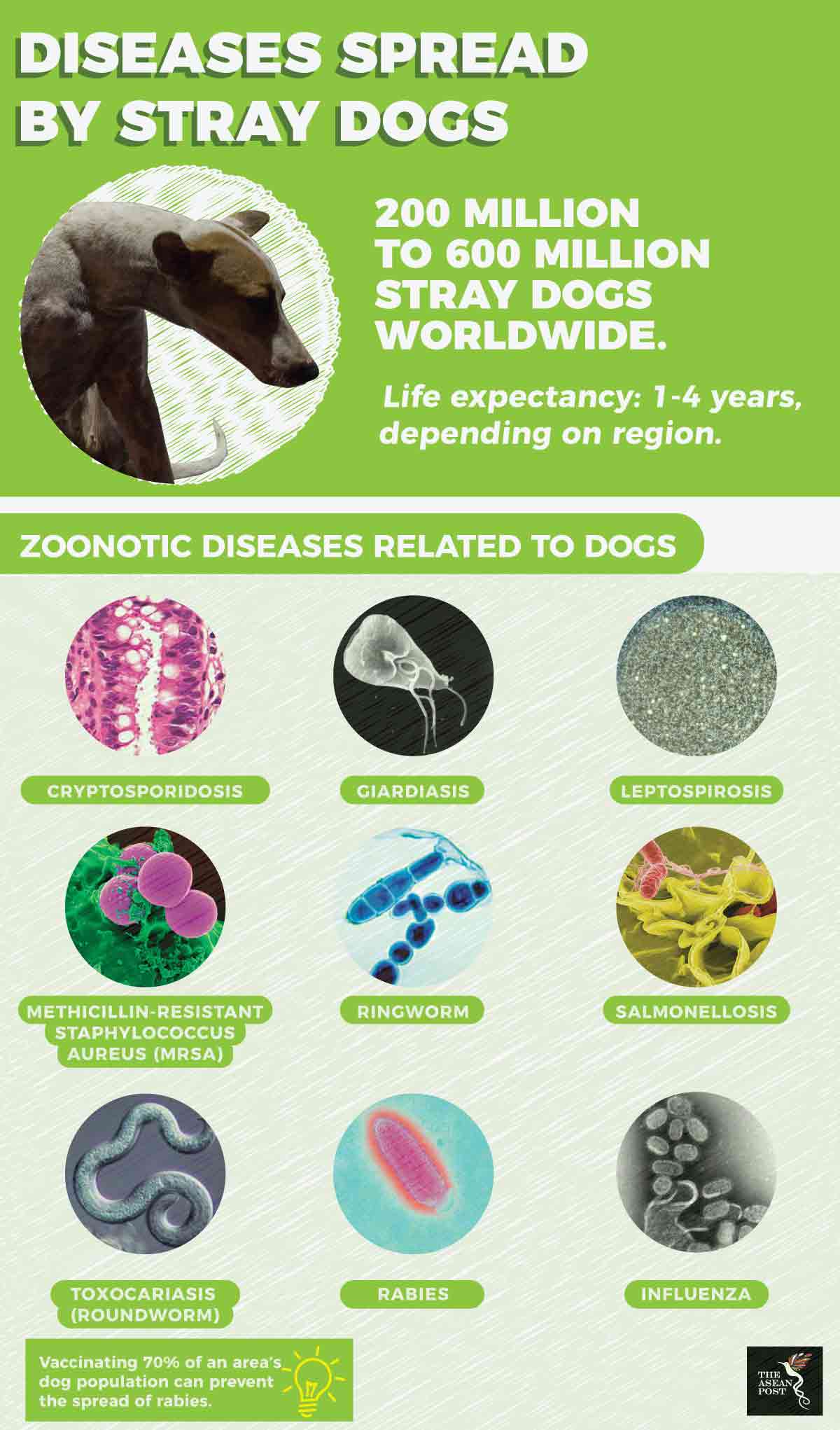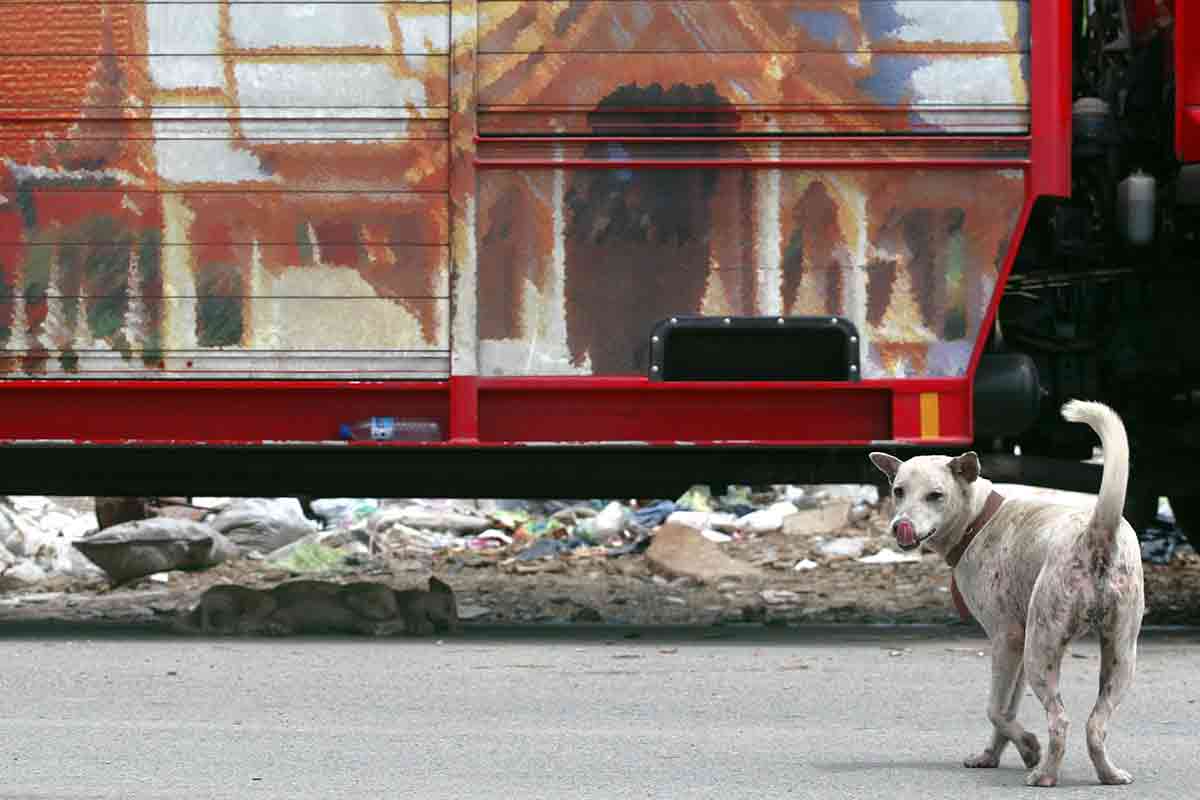A pack of dogs look nervously as strangers walk toward and past them, their eyes watchful for signs of danger, yet hopeful for a morsel of food. These are the stray dogs that litter the streets of Thailand.
“The authorities used to shoot and poison these dogs but it did not solve the problem. This practice was stopped when the late King Bhumibol Adulyadej intervened,” John Dalley, co-founder of Soi Dog Foundation (SDF) told The ASEAN Post.
The King was well known for his concern and care for the welfare of animals and adopted many handicapped, stray and abandoned animals including Tong Daeng, a street dog that became the subject of a best-selling book the King wrote. Proceeds from the sales of the book go towards several royal animal welfare projects.
In predominantly Buddhist Thailand, euthanasia is frowned upon. Even then in Chiangmai, stray dogs have been found poisoned with strychnine-laced meat. The people responsible believe they are absolved because the dog chose to consume the poison. Death by strychnine is slow and agonising.
The more conventional approach is to round up the strays and keep them in huge shelters. However, shelters typically rely on donations and the high cost of maintaining and operating them often result in squalid conditions akin to death camps.
Stray dogs in temples and on the streets are usually pets that have been abandoned by their owners after the novelty of owning them wears off or their upkeep gets too troublesome. Some pet stores also discard unsold puppies when they get too big.
Thais do not consume dog meat except in small areas such as Tha Rae in Sakon Nakhon, which was also a hub for smuggling stolen pets and street dogs into Vietnam to be sold as food. Thai government crackdowns have reduced this activity.
Read more: Thriving dog meat trade
The persistence of the stray dog problem is due to the availability of food. When food and garbage are improperly disposed, animals will feed off them. Locals also feed these dogs because they provide some form of security for the neighbourhood but nobody accepts ownership.
The United Kingdom (UK) had a stray dog problem in the 1960s. When dog-proof bins were introduced, there were no more stray problems, except for abandoned dogs and the occasional wildlife foraging for food.
Dogs are territorial by nature. If they are sterilised and released, they can keep other dogs from entering an area and strays will gradually die out. If 70 percent of strays are neutered and vaccinated against rabies, the spread of rabies will be contained and the population of strays brought under control. Infected dogs entering the territory cannot infect the population and will die off without spreading the disease.
 Source: Various sources
Source: Various sources
Anti-rabies vaccines for dogs are very cheap, costing about US$0.10, compared to vaccines for humans. Veterinarians are not required for administering vaccines for dogs.
However, in some places, local authorities use the threat of rabies to justify culling strays. They may also round up sterilised dogs from parks, allowing new unsterilised dogs to take over and begin the problem anew.
Even when all stray dogs are eradicated, other scavenging animals will take their place. In Phuket, where SDF is based, the stray dog population has dwindled from 60,000 to 7,000 but the stray cat population drastically increased. The agile creatures are harder to catch and control than dogs.
Without addressing the food waste disposal issue, getting rid of both dogs and cats may lead to an explosion in the rat and mice population, as well as an increase in snakes which feed on the vermin.
SDF’s sterilisation efforts have met with some resistance from Buddhist monks, who believe bad monks are reincarnated as temple dogs and insist that male dogs should not be castrated. To prevent a proliferation of puppies, the monks feed cheap contraceptives to female dogs which often leads to perimetrium diseases and death.
SDF provides free sterilisation and processes some 7,000 dogs and cats each month. “Sterilisation is still the main option for us, but proper food waste management is still important. Without food and with no one feeding them, the number of strays will reduce,” Dalley said.
ASEAN aims to eradicate rabies by 2020. Without large-scale vaccinations, that date may have to be extended.
